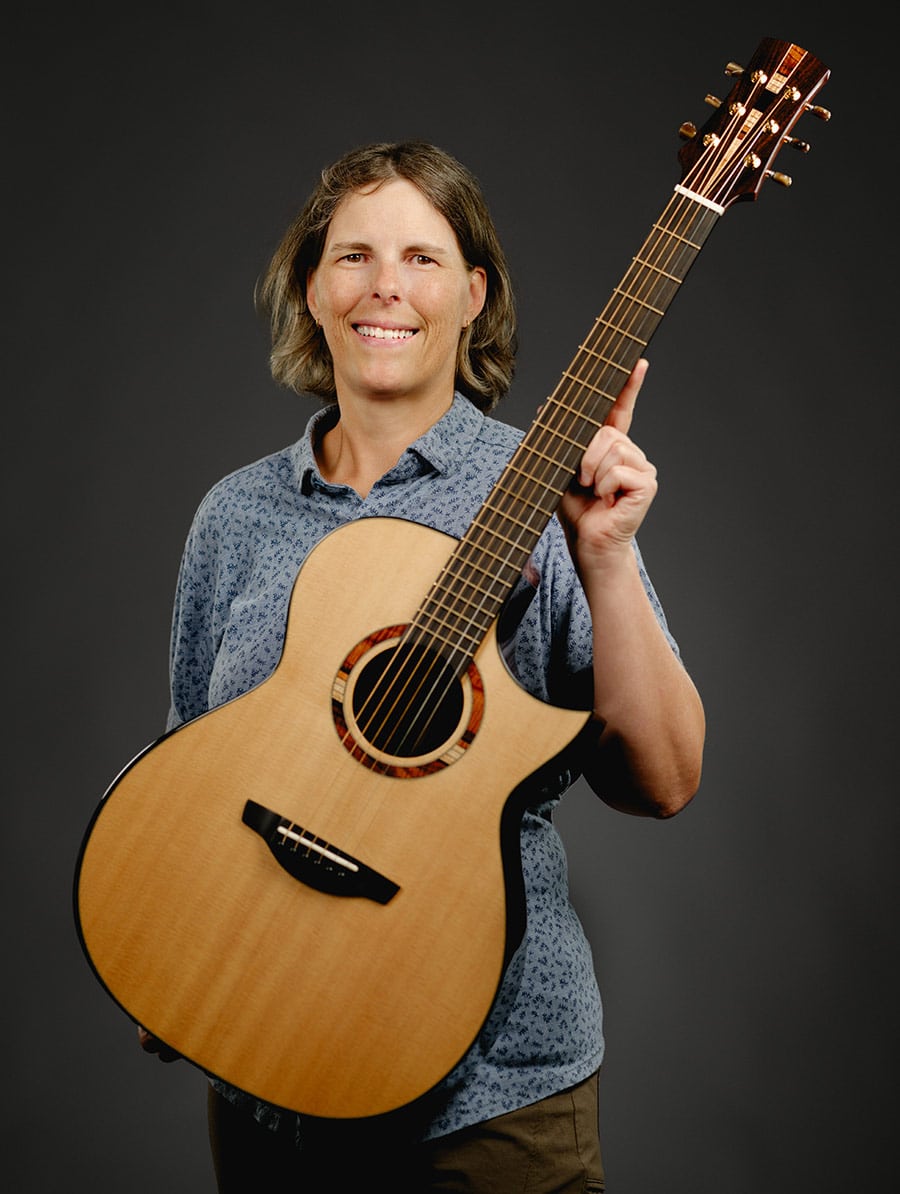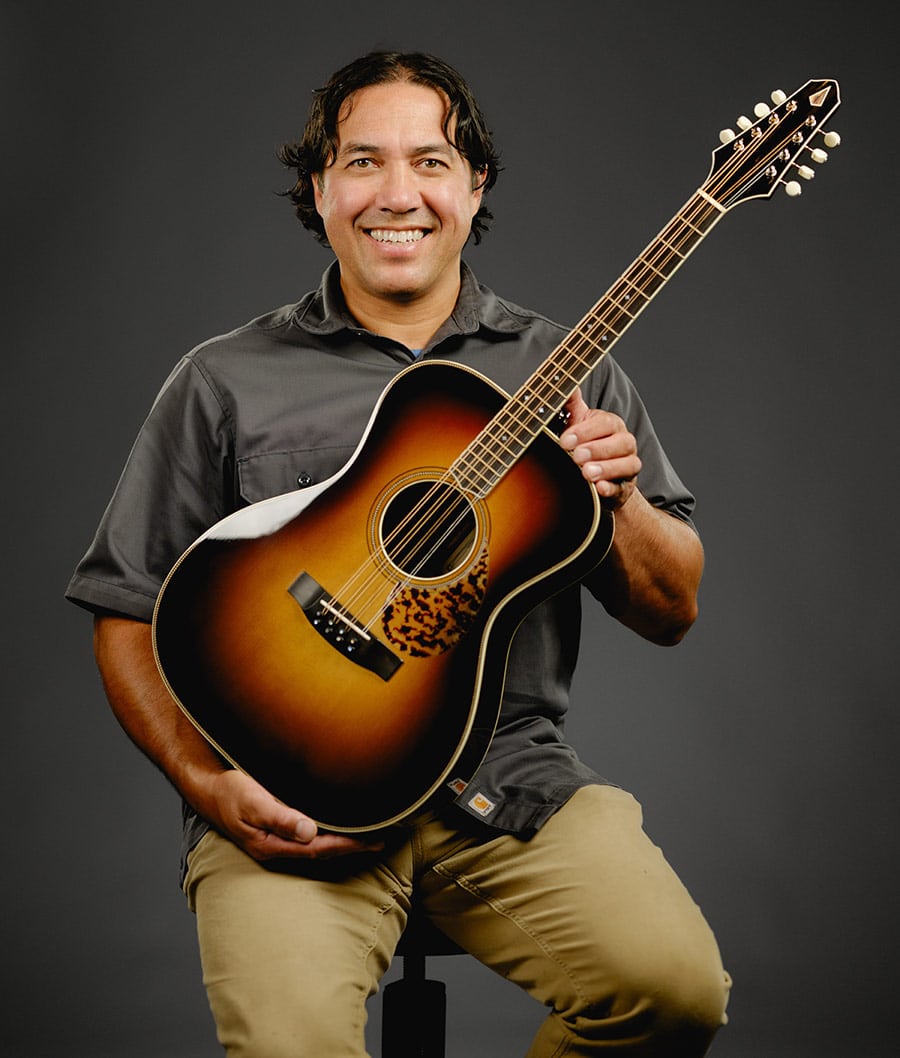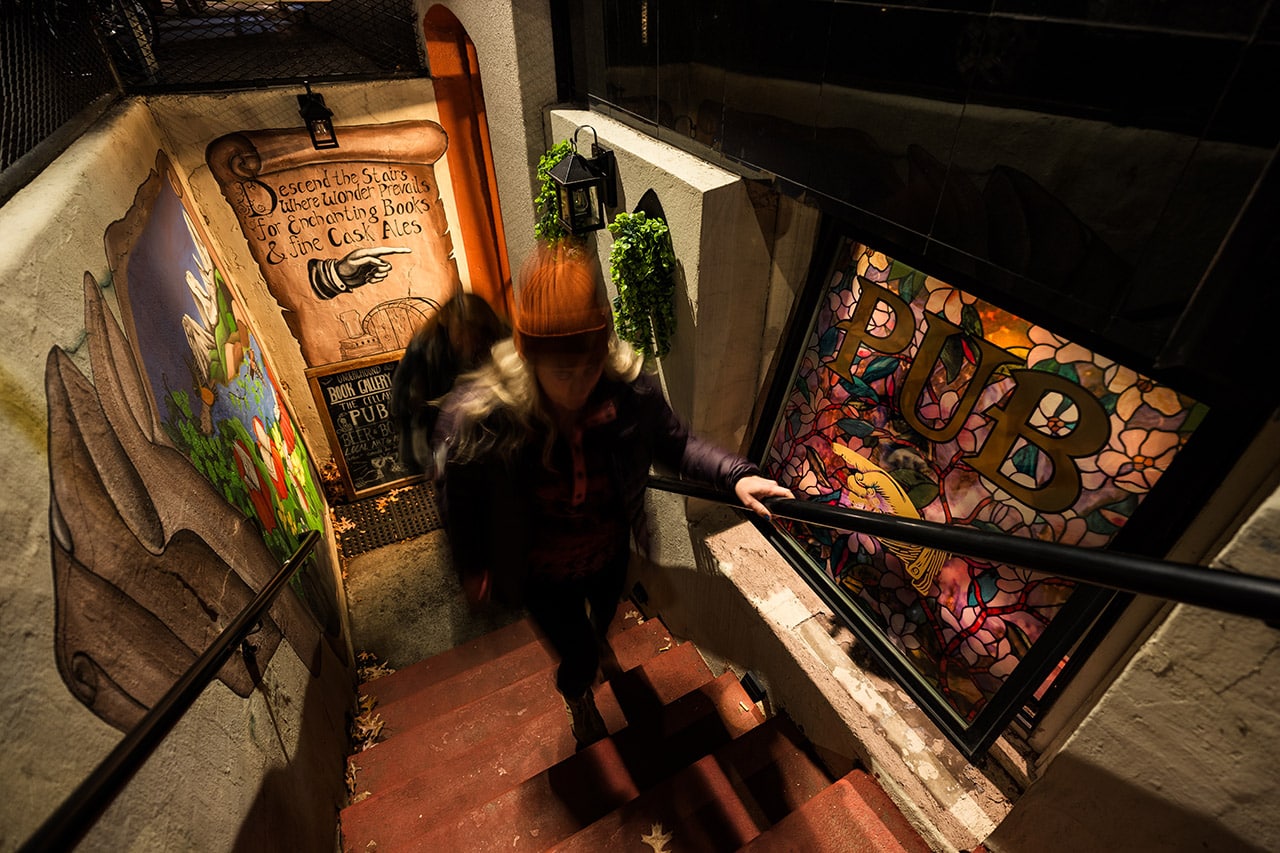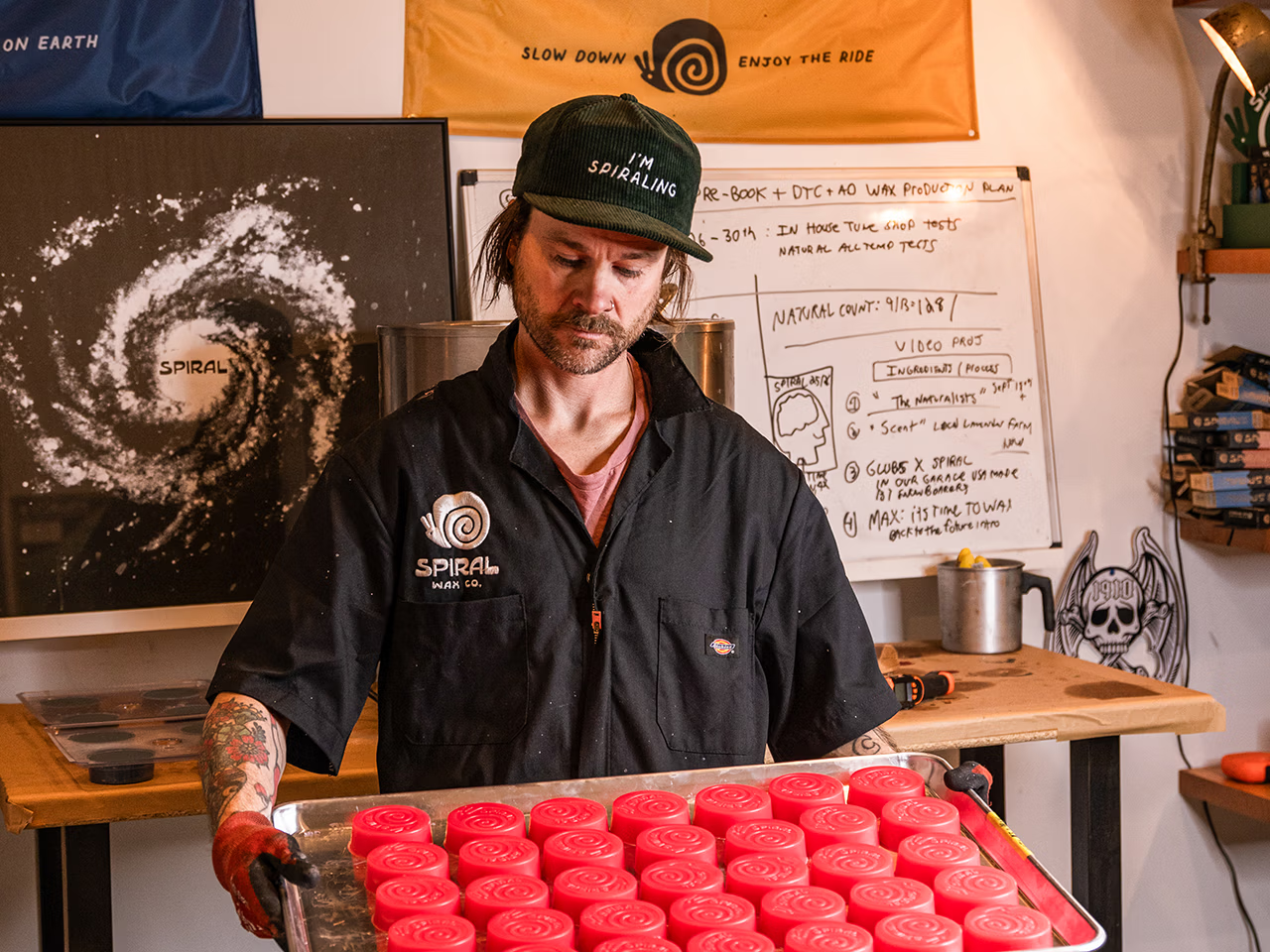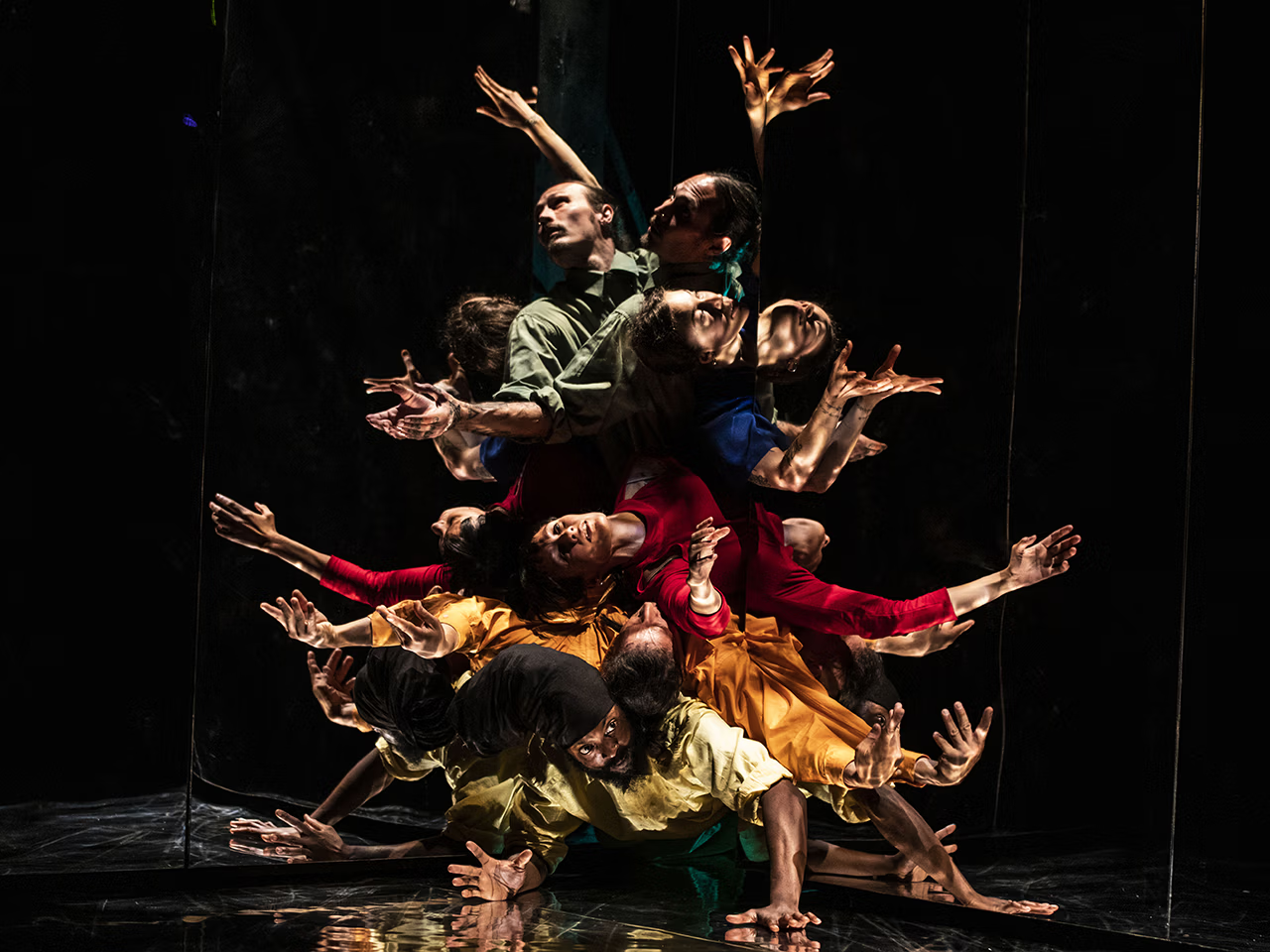Mention Bend and folks say “beautiful” and “beer.” But there’s another descriptor taking the stage. “Central Oregon is an incubator of instrument building,” said Brad Tisdel, creative director of the Sisters Folk Festival. “People here have an expansive view of music and art as an expression of culture and economic vitality. We have created a very healthy ecosystem.”
For more than three decades, Central Oregon companies and luthiers have created fretted, stringed instruments—works of art played around the world. Some conjecture that Central Oregon has become an incubator for instrument building because of its manageable humidity and temperature, or perhaps it’s proximity to the robust builder scene in Portland and the availability of ideal wood in the Pacific Northwest. Then, there’s Bend’s laid-back, music-centric culture set in nature’s playground.
“Every builder I know appreciates just being around wood,” said Andrew Mowry, a Bend mandolin and archtop guitar builder who spends free time outdoors. “When I see a giant spruce tree, it’s hard not to think of how many instruments could be made out of it.”
While living in Montana, Mowry harvested an Engelmann spruce—a favorite for instrument tops. With undergrad and graduate science degrees, he uses a computer-controlled device to rough-carve his tops. But he’s a scientist who also likes to draw. “The convergence of art and science is one of the draws to lutherie.”
His work is in high demand, as attested by a waiting list of more than three years and clients in Canada and the United Kingdom. That’s without a single dollar spent on marketing. “Hand-made instruments are sold mostly by word of mouth,” he said.
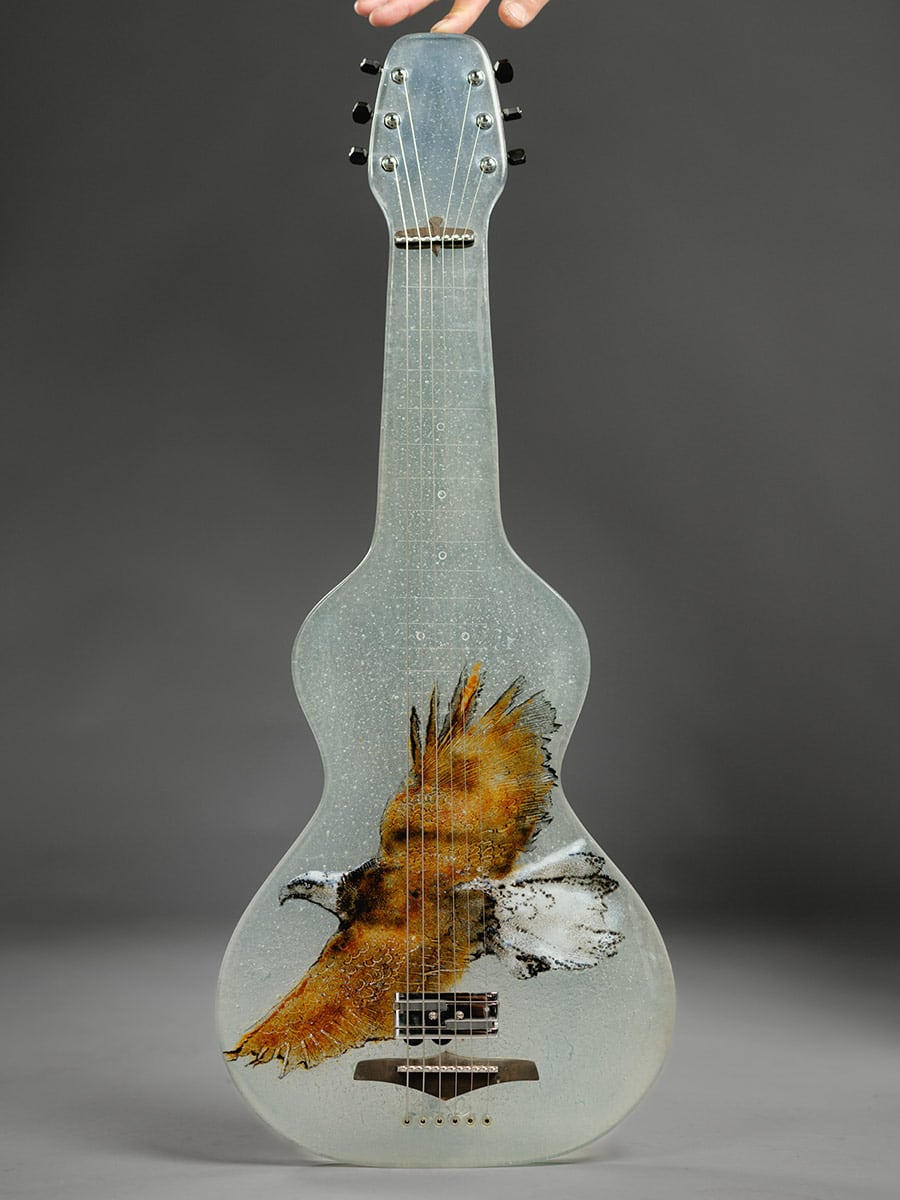
A Reverence for Wood
It all begins with the wood. Instrument builders hoard it, hunt it and honor it. In essence, it’s the soul of a hand-made instrument.
Bend luthier Butch Boswell thinks about wood incessantly, spending most of the year locked in his Franklin Avenue shop bending, carving and gluing pieces of wood together. At least once a year, he heads off to the Siskiyou Mountains where he harvests old-growth redwood from an abandoned railroad tunnel. “Tunnel 13” is the title of a Mark Knopfler song and the wood used in one of the several Bowell guitars Knopfler owns. The former lead of Dire Straits has collaborated with Boswell on a signature model. The 20 slots sold almost immediately when the model was announced.
Boswell studied engineering in college while learning guitar repair at a music shop. Although he played in several bands, he was more drawn to instruments than performing. He spent 15 years repairing guitars but eventually began building them. About 12 years ago, he relocated from California to Bend, and his reputation soared. Boswells are described by Fretboard Journal as Martin-flavored, “inspired by the classics, but also sporting forward-thinking features.”
What makes a good instrument builder? “Drive and tenacity,” said Boswell. “You must give 150 percent to the work.” Being a luthier is hard on the body, with hours spent hunched over a bench. All the carving, binding, inlaying and finishing require nuclear-level focus. Many materials, tools and operations performed by 21st-century luthiers would be entirely familiar to Stradivari, the 17th-century Italian string-instrument master craftsman. Unusual materials exist: Jayson Bowerman, a former Breedlove luthier, recently made one of the world’s first lap steel-glass guitars with Sister’s fused-glass artist Susie Zeitner.
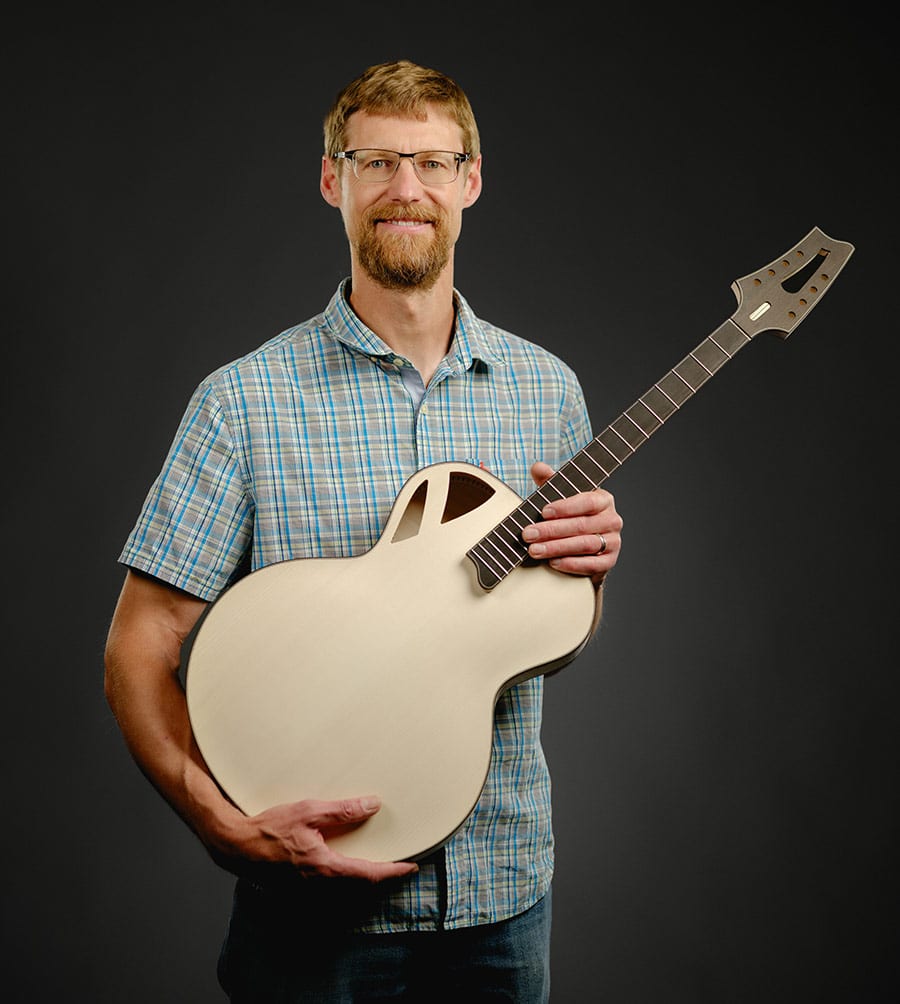
Tradition Meets Innovation
In 1990, two Taylor Guitar alumni, Larry Breedlove and Steve Henderson, founded Breedlove in a Tumalo studio. Breedlove’s brother and banjo builder Kim joined them. The three builders carved a niche in an industry dominated by Gibson, Martin and Taylor by combining a distinctive modern design with Pacific Northwest woods, such as myrtlewood, redwood and Port Orford cedar. The operation moved to a new Bend facility in 2008 and encountered financial headwinds, leading to the sale of Breedlove to Tom Bedell, a guitar entrepreneur. Today, Bedell and Breedlove’s two guitar brands are crafted by an almost 40-person team under the corporate entity “Two Old Hippies,” Bedell’s company. More than 1,500 Breedlove and 200 Bedell guitars are made in Bend annually. A luthier working alone would be hard-pressed to make more than a dozen instruments a year.
The two brands are strikingly different: Bedells harken back to another era of guitar building and are, in essence, an “old classic car,” according to Robert (RA) Beattie, marketing and artist relations director. Breedlove, on the other hand, stakes its claim on innovation and sustainability, a kind of “Tesla of the guitar world.” Breedlove pioneered the use of Oregon myrtlewood, which is wavy-patterned and more sustainable than most instrument wood. Company outreach includes donating materials to Sisters High School’s luthier program and annually donating a guitar for the Sisters Folk Festival.
Also in Bend is Weber Mandolins, once part of the Two Old Hippies cohort. Since 2022, former Breedlove luthier Ryan Fish has run the company independently, with a reputation for making top-flight mandolins. If listening to Counting Crows, Trampled by Turtles or blues musician Keb’ Mo’, the bell-like mandolin pickings come from a Weber.
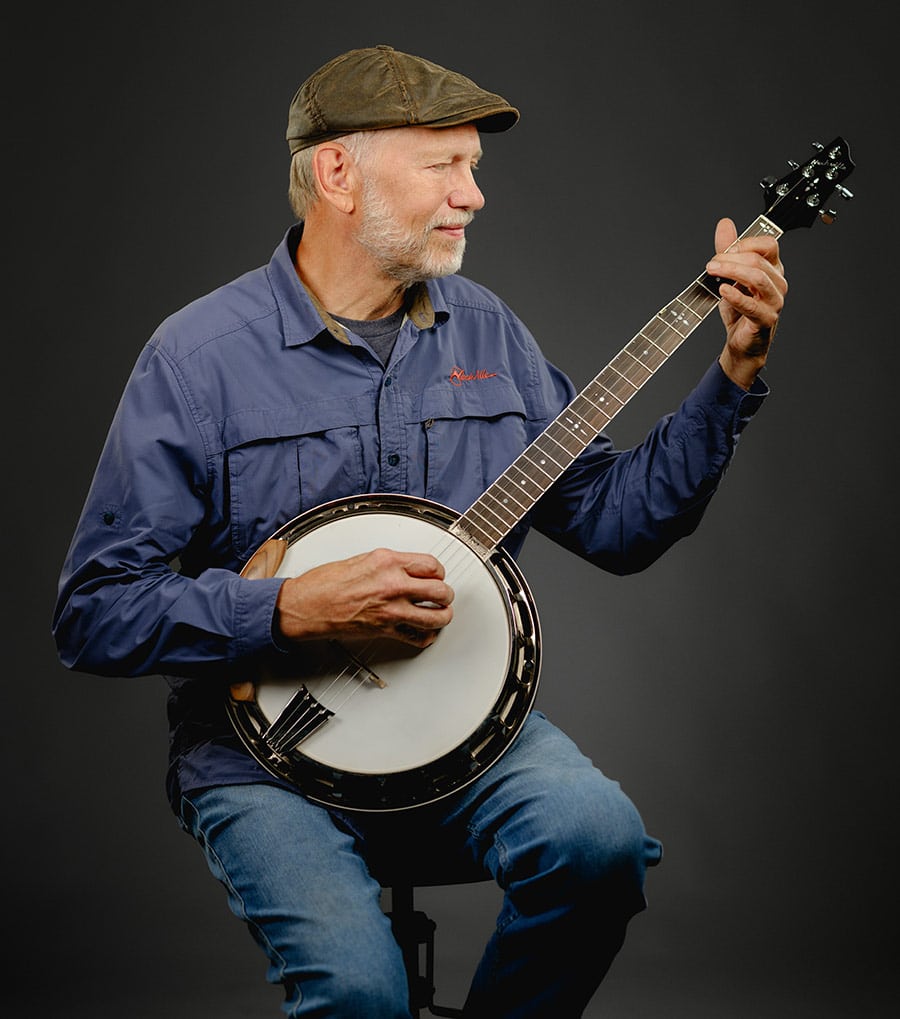
Sisters Joins the Band
The small town of Sisters is another hotbed of instrument building. Thompson Guitars, founded in 2013, is a boutique shop, building about 100 instruments a year. The company was founded by Preston Thompson, a guitar maker who fashioned instruments in the 1930s, the golden era of Martin Guitars. Master luthier Thompson passed away in 2019, but his approach to building continues at his Sisters shop. Thompson devotees include Grammy-award winner Peter Rowan, who bought his first guitar from Thompson in the 1980s, and Billy Strings, a wildly popular contemporary guitarist whose band played the Redmond “Farewell Festival” in July. Molly Tuttle, who won a Grammy for Best Bluegrass Album in 2024, has several Thompson guitars in her collection, including a Thompson Signature model.
Down the street from Thompson Guitars is the retail location of Banjos West owned by Tom Nechville and his partner Linda Leavitt. Nechville, an inventive banjo maker formerly based in Minnesota, recognized kindred musical spirits in Sisters. “Our alternative designs take the best ideas from the past and improve them, for an interesting balance of tradition and innovation,” Nechville said. He found the designs were more readily acceptable in the northwest, making Sisters a natural location for Nechville’s new production facility, Banjo Revolution, which allows him to spend more time on every banjo he creates.
The Billy Strings band embodies the instrument building scene in Sisters: Not only does Billy Strings play a Thompson guitar, but his banjo player Billy Failing picks a Nechville Vintage Eclipse.
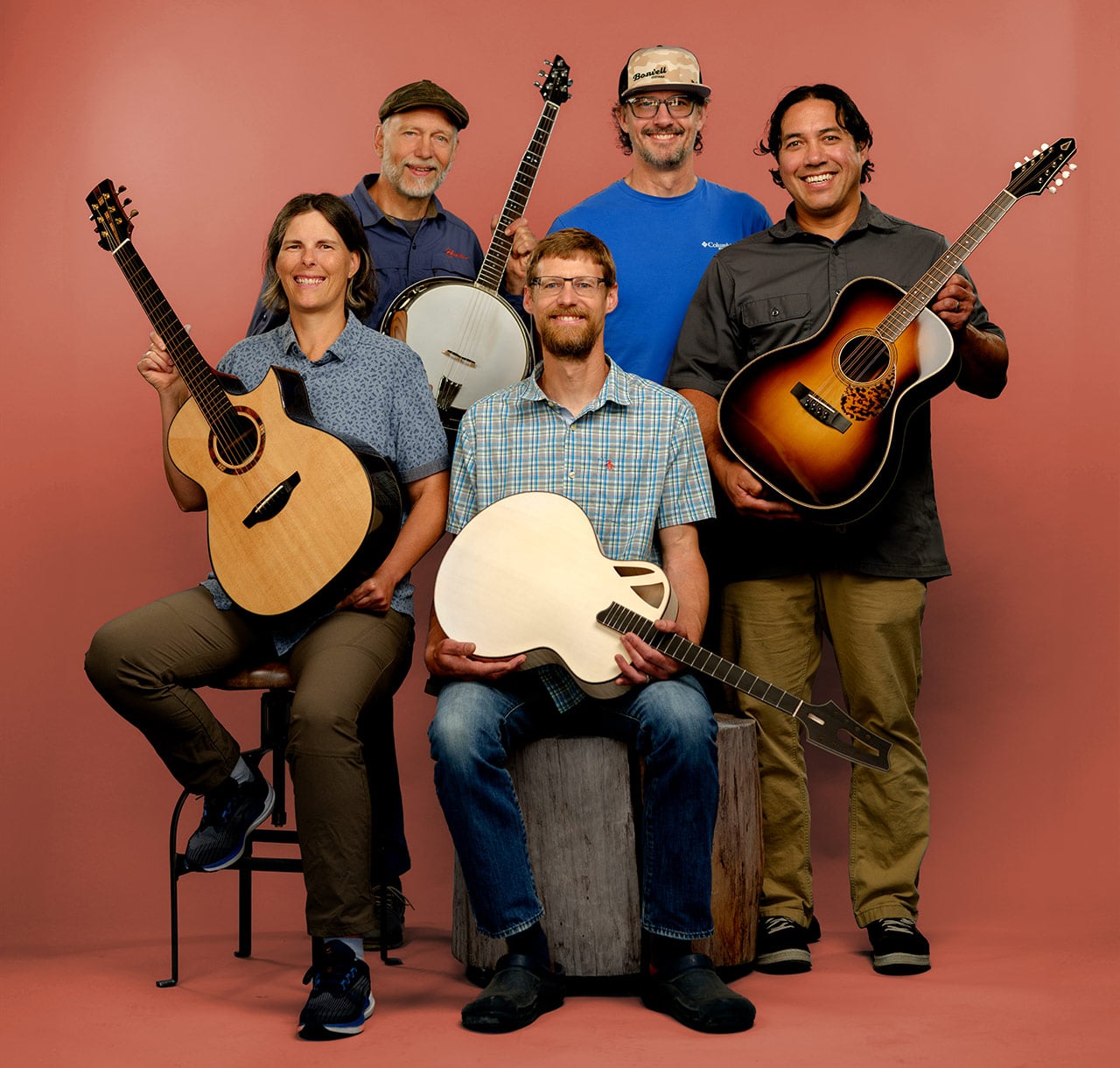
The Artistry of Lutherie
Rebecca Urlacher is a rarity in the lutherie world. In the early 2000s, she Googled “female luthiers” and found only three women in the field. Urlacher, who moved to Bend in high school and earned a BFA at the University of Oregon, is also rare as a luthier who doesn’t play music. “She’s one of the top 10 builders I’ve encountered,” said Boswell. “She can voice a top like no one else.” Voicing a top involves tapping the wood, carefully listening to the tone and then adjusting its thickness and shape. When Urlacher taps a guitar top, she’s imagining “how that guitar will sing.” she said. Her finger-style guitars are known for their playability, amazing sustain and wide dynamic range.
Urlacher was a decade into a successful career as a porcelain ceramicist when she took a right turn toward guitars. “I saw a picture of a luthier’s shop—all those tools and wood—and said, ‘That’s it.’” Urlacher learned instrument building by reading books, watching videos and interacting with other builders. “You can approach building very scientifically, but I approach it more instinctually.” Her instincts—honed by years of hand-building classy, simple vessels of clay—help her shape magnificent instruments of wood, and she builds only five or six guitars a year, which allows her meticulous focus.
She said she builds guitars for the music. “There’s no greater thing than creating something people play.”
